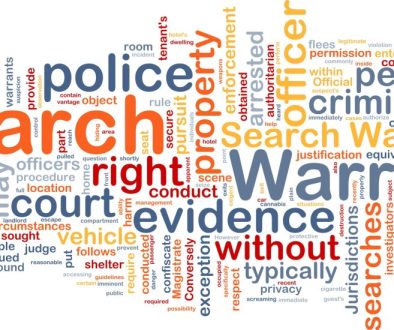Answers to the top criminal defense questions for 2017
2017 is more than halfway done and it has been nonstop for our law firm! During that time we have put together a list of the top questions that clients have asked so far this year. It is my hope that these questions and answers help you or a friend with a criminal case in Pennsylvania and New Jersey. As always, these question focus on the area of drunk driving (DUI), illegal drugs, narcotics, illegal firearms and expungements.
How did the United States Supreme Court case of Birchfield v. North Dakota change DUI prosecutions in Pennsylvania?
The United States case of Birchfield v. North Dakota changed DUI prosecution and defense in Pennsylvania. Before this decision, Police could demand that you submit to a blood test. If you didn’t submit to the test, you would not only be charged with a DUI but also a DUI refusal, a separate crime that subjected you to the most severe penalties under the law.
The Birchfield decision changed all of this in Pennsylvania. Now police can still demand that you submit to a blood test after you’re arrested for DUI, but the results of those tests aren’t admissible in court, unless police obtained a search warrant before they took your blood. So no warrant means no blood test can be introduced in court. This decision only applies to blood testing and not breathalyzer testing. This decision is incredibly important to DUI defense in Pennsylvania because it seriously hinders the Commonwealth’s ability to prosecute a person on more serious DUI charges. The seriousness of a DUI offense depends on the circumstances surrounding your arrest, like an accident, but also on your Blood Alcohol concentration (BAC). Without blood evidence, the prosecution can’t intro BAC into your case. If you have more questions about DUI defense, I encourage you to pick up a copy of my book 5 Ways to Fight and Win Your Pennsylvania DUI case
Since DUI prosecutions involving blood evidence now require a search warrant, should a person refuse to submit to a blood test in Pennsylvania? What about a breathalyzer?
No, even with the recent case of Birchfield v. North Dakota, you should not refuse a blood test in Pennsylvania. Most people don’t understand that a DUI refusal is not just a criminal offense in Pennsylvania but also a civil violation. The Pennsylvania Department of Transportation (PENNDOT) can and will suspend your license for a year based on refusal alone, it doesn’t matter what happens in the criminal case. Don’t refuse a blood test because the Birchfield case covers the criminal aspect of DUI and not the civil penalties that PENNDOT can impose. While the Birchfield decision provides you with a means around many of DUI offenses within Pennsylvania’s DUI criminal statute with regards to blood test, its not going to be helpful for DUI prosecutions involving breathalyzers. The Birchfield decision does not apply to breathalyzer; the US Supreme Court specifically said in the decision that breathalyzers do not need search warrants. The reasoning behind this decision according to the Court was that the Breathalyzer was far a less intrusive search. This makes sense because with a blood test, the government is literally piercing your skin to obtain a sample of your blood whereas with a breath testing, they are simply taking a sample of your breath which is painless. If you have more questions about DUI defense, I encourage you to pick up a copy of my book 5 Ways to Fight and Win Your Pennsylvania DUI case
Do police need a warrant to search a vehicle for an illegal gun or drugs in Pennsylvania during a “routine traffic stop”?
Traditionally, Pennsylvania provided persons with a higher degree of constitutional protection when it came to warrantless searches of their vehicles.
Up until a few years ago, Police could not search a vehicle without a warrant unless there were exigent circumstances present such as car chase or something other than the fact that it was vehicle involved. This was different from the federal standard regarding vehicle searches. The law has recently changed and now, Police may search a car during a traffic stop if they have probable cause to believe that the car contains contraband like illegal drugs or guns. Remember that probable cause is the reasonable belief, based on the officer’s knowledge and training that a crime is being committed. While police may search your car without probable cause, I can’t stress enough the importance of not giving consent to search. If you give consent, you are seriously hindering your attorney’s ability to fight the constitutional basis for the stop and your arrest. If you would like more information about illegal search and seizure in a case involving illegal drugs or guns, check out my book –What Everyone should know about Drugs, Guns and Defense Lawyers in Pennsylvania
What is the difference between expunging a criminal record and sealing a record?
In Pennsylvania, you can’t expunge a conviction for a misdemeanor or felony crime. You can only expunge for your arrest record. Expunging a record is exactly what it sounds like; the record is removed and destroyed. Recently, Pennsylvania created a criminal record sealing law. This new law was created to address those persons who were convicted of certain misdemeanor offenses. It does not apply to felony offenses. The process to expunge and seal a records are similar; both require that your lawyer file a petition with the court, which the Commonwealth can challenge. When you expunge an arrest record, it gets destroyed. When you seal a record, you prevent practically everyone from looking at it except certain government and licensing agencies so most private employers won’t be able to see it. The following misdemeanors convictions are not eligible for sealing
- Any convictions for misdemeanor of the first degree
- 4 or more misdemeanor convictions
- Any convictions under Megan’s law
- Any convictions involving witness intimidation
How can you legally travel through New Jersey with an out of state handgun?
New Jersey has some of harshest illegal gun and firearm laws in the country under its Graves Act. Just because your gun or firearm is legal in Pennsylvania, doesn’t make it legal in New Jersey. Unlike Pennsylvania, most people can’t even obtain a license to carry a gun in New Jersey. New Jersey and Pennsylvania border each other but are very different in their treatment of guns. Pennsylvania is a “shall issue state” whereas New Jersey is a “may issue” state. Other “may issues” states include New York and Delaware. If you’re traveling through New Jersey, please following this advice
Keep the gun unload and in a locked gun box preferably in the trunk of your car. Keep the ammunition separate from that container and in its own separate container. Traveling into New Jersey with an out of state weapon in any other way is a crime and you face a possible mandatory minimum jail sentence if you are convicted. The fact that a gun is legal in another state may allow you to escape a mandatory sentence but that is at the discretion of the prosecutor. You are not entitled to any relaxed sentence
How much evidence do police need to obtain a warrant to search a home for evidence of crime involving an illegal gun or drugs?
Searching a house is much different than searching a vehicle. A person has a much higher expectation of privacy in their home than they do in their house. A higher expectation of privacy means that there are stronger constitutional protections. The search of a home and vehicle both require probable cause. This is a reasonable belief that a crime is being committed. Any search conducted without a warrant is on its face unconstitutional but there are exceptions. When it comes to a house, exigent circumstances which would bypass the need for a warrant would be the hot pursuit of suspect into a home or some other scenario where there was strong possibility that police were going to lose the evidence.
What determines a person’s bail in Pennsylvania?
When it sets bail, a Court in Pennsylvania will consider the following
- The nature of the offense and any mitigation or aggravation regarding it
- The defendant’s employment history and financial condition
- The defendant’s family relationships (i.e. children)
- The length and nature of the defendant’s residence in the community and past residence
- The defendant’s age, reputation, and mental condition
- The defendant’s history regarding his or her failure to appear in the past
- The defendant’s prior criminal history
- Any other factors the court may find relevant
If you enjoyed this blog, I encourage you to visit our free download section for more great information.
Contact Our Criminal Defense Lawyers in PA & NJ
Please click here to contact our Philadelphia criminal defense lawyers. We offer free case reviews and serve the following areas in Pennsylvania and New Jersey, Atlantic City, Camden, Cherry Hill, Chester, Conshohocken, Doylestown, Media, Norristown, Philadelphi



